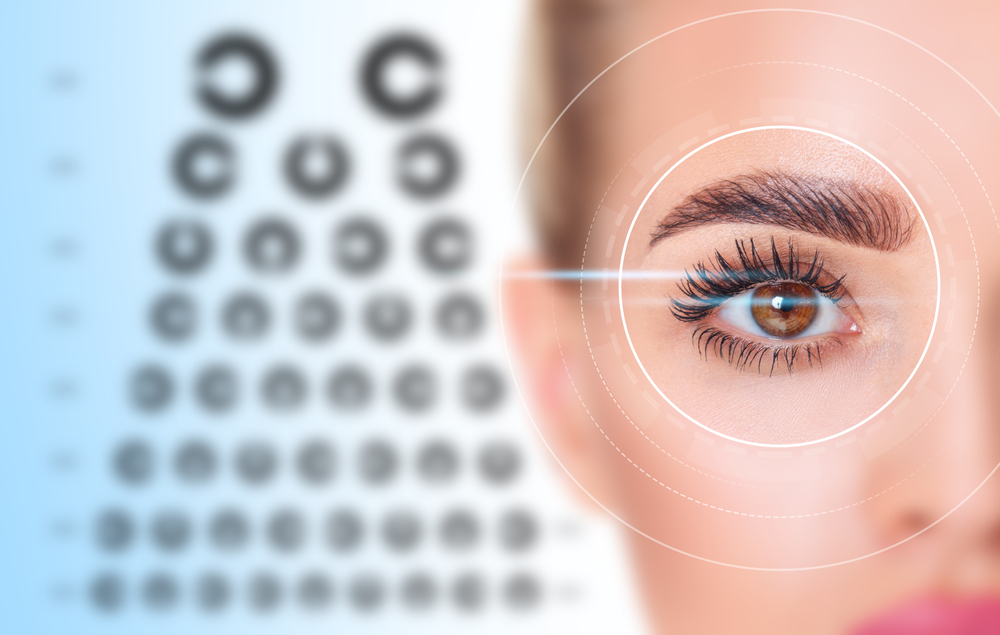
Laser vision correction has become an increasingly popular choice for those seeking to improve their eyesight. This revolutionary procedure uses advanced laser technology to reshape the cornea (the clear front part of the eye) to correct refractive errors such as nearsightedness, farsightedness, and astigmatism. By addressing these common vision problems, laser eye surgery can often eliminate or significantly reduce the need for glasses or contact lenses, providing a life-changing experience for many individuals.
Why Laser Eye Surgery is a Popular Choice
The growing popularity of laser vision correction can be attributed to several factors. Firstly, the procedure is highly effective, with a success rate of over 90% in achieving 20/20 vision or better. Secondly, the recovery time is relatively quick, with most patients experiencing improved vision within the first few days after the procedure. Additionally, the procedure is generally considered safe, with a low risk of complications when performed by an experienced ophthalmologist.
The Importance of Pre-operative Evaluation
Before undergoing laser vision correction, it is crucial to undergo a comprehensive pre-operative evaluation. This evaluation is designed to assess your suitability for the procedure and ensure that your eyes are healthy enough to undergo the surgery. The pre-operative evaluation is a critical step in the laser vision correction process, as it helps to identify any potential issues or contraindications that may affect the success of the procedure.
The Role of an Optometrist in Pre-operative Evaluation
As a key member of the laser vision correction team, the optometrist plays a crucial role in the pre-operative evaluation process. Your optometrist will conduct a thorough examination of your eyes, including the following:
- Refractive Error Measurement: Your optometrist will use advanced diagnostic tools to precisely measure the refractive errors in your eyes, such as nearsightedness, farsightedness, and astigmatism. This information is essential for the ophthalmologist to determine the appropriate laser treatment.
- Corneal Mapping: Your optometrist will use specialized imaging technology to create a detailed map of the surface of your corneas. This information helps the ophthalmologist to identify any irregularities or abnormalities that may affect the success of the laser procedure.
- Tear Film Evaluation: Your optometrist will assess the health and quality of your tear film, which is essential for maintaining good vision and eye comfort after the surgery. Any issues with dry eye or tear film instability may need to be addressed before the procedure.
- Overall Eye Health Assessment: Your optometrist will thoroughly examine your eyes to ensure that there are no underlying conditions, such as eye diseases or eye injuries, that could affect the outcome of the laser vision correction procedure.
Your optometrist plays a vital role in ensuring that you are an appropriate candidate for laser vision correction and that the procedure is tailored to your individual needs.
The Optometrist's Role in Post-Surgery Follow-up
After the laser vision correction procedure, your optometrist will continue to play an important role in your care. During the post-operative period, your optometrist will:
- Monitor Your Visual Acuity: Your optometrist will regularly assess your visual acuity to ensure that your eyes are healing properly and that you are achieving the desired visual outcomes.
- Evaluate Eye Health: Your optometrist will closely monitor the health of your eyes, checking for any signs of complications or side effects, such as dry eye, infection, or corneal haze.
- Provide Customized Treatment: If any issues arise during the recovery process, your optometrist will work with the ophthalmologist to develop a personalized treatment plan to address your specific needs.
- Coordinate with the Ophthalmologist: Your optometrist will maintain open communication with the ophthalmologist who performed your laser vision correction procedure, ensuring that your care is seamlessly coordinated and that any necessary adjustments are made.
By working in partnership with the ophthalmologist, your optometrist plays a vital role in ensuring a successful and satisfactory outcome from your laser vision correction procedure.
Benefits of Co-Management in Laser Vision Correction
The co-management approach, where your optometrist and ophthalmologist work together throughout the laser vision correction process, offers several significant benefits. By involving both an optometrist and an ophthalmologist, you can be assured of receiving comprehensive and thorough evaluation, treatment, and follow-up care. The collaboration between your optometrist and ophthalmologist allows for a more personalized approach to your laser vision correction, taking into account your unique eye health and visual needs. The combined expertise and ongoing communication between your optometrist and ophthalmologist can lead to better surgical outcomes and a smoother recovery process.
Your optometrist will be your primary point of contact for any questions or concerns you may have throughout the entire laser vision correction process, providing you with the support and guidance you need.
Get Started with Vista Eyecare Today
By choosing a co-managed approach to your laser vision correction, you can be confident that you are receiving the highest level of care and the best possible outcome for your vision.
If you're considering laser vision correction, Vista Eyecare is here to guide you through the process. Visit our office in Saskatoon, Saskatchewan, or call (306) 955-3811 to schedule your consultation and take the first step towards clearer glasses-free vision.





